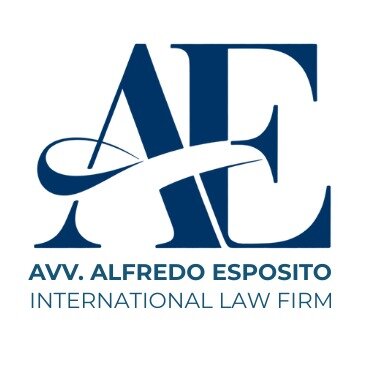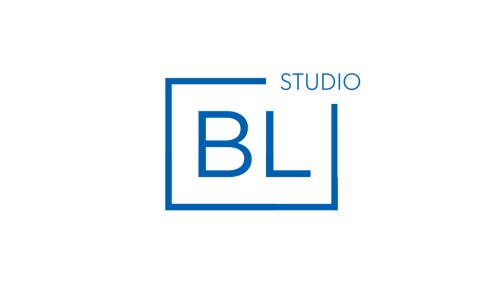Best Government Relations & Lobbying Lawyers in Italy
Share your needs with us, get contacted by law firms.
Free. Takes 2 min.
Or refine your search by selecting a city:
List of the best lawyers in Italy
About Government Relations & Lobbying Law in Italy
Government Relations & Lobbying in Italy is a structured way through which individuals, organizations, and businesses interact with government officials and institutions to influence public policy and decision-making processes. Although the practice has been long-standing, Italy introduced more formal regulations on lobbying activities, focusing on transparency, ethics, and accountability. Italian laws regulate the interactions between lobbyists and policymakers to prevent corruption and ensure democratic processes are maintained.
Why You May Need a Lawyer
There are several situations where one may need legal assistance in the field of Government Relations & Lobbying in Italy. These include:
- Understanding and complying with complex lobbying regulations.
- Drafting and submitting lobbying documents and disclosures according to Italian laws.
- Navigating potential conflicts of interest or ethical concerns.
- Dealing with government inquiries or investigations related to lobbying activities.
- Advocating effectively for your position in a legally compliant manner.
Legal experts provide guidance on aligning lobbying efforts with the current legislative framework and can help prevent potential legal issues.
Local Laws Overview
Government relations and lobbying in Italy are governed by a framework that aims to increase transparency and accountability. Some key aspects include:
- Transparency Register: Italy adheres to a Transparency Register, which requires lobbyists to register and declare their interests. This helps monitor and track lobbying activities.
- Code of Conduct: Registered lobbyists must follow a strict code of conduct, which outlines ethical behavior standards, including honesty, integrity, and impartiality.
- Disclosure Requirements: Lobbyists must disclose their activities, including objectives, clients, and financial interests, in reports to relevant government bodies.
- Communication Restrictions: Certain restrictions apply regarding lobbying communication methods and the use of gifts or incentives.
Understanding these legal elements is crucial for legally compliant lobbying practices in Italy.
Frequently Asked Questions
What is the purpose of lobbying in Italy?
Lobbying aims to influence public policy and decision-making by engaging with policymakers to express views or concerns about particular legal or regulatory matters.
Is lobbying legal in Italy?
Yes, lobbying is legal in Italy but is subject to regulations designed to ensure transparency and prevent undue influence or corrupt practices.
How do I register as a lobbyist in Italy?
To register as a lobbyist, individuals and organizations must enroll in the Transparency Register, providing detailed information about their lobbying activities, clients, and objectives.
What documents are required for lobbying disclosure in Italy?
Disclosure typically requires information on lobbying activities, including the programs, goals, resources used, and any financial spending related to the lobbying efforts.
Are there any penalties for non-compliance with lobbying laws?
Yes, non-compliance with lobbying laws can result in penalties such as fines, suspension from the Transparency Register, or prohibition from engaging with government officials.
Can individuals engage in lobbying activities without registering?
No, individuals or organizations conducting lobbying activities must register and comply with established legal guidelines and disclosure requirements.
How often must lobbyist reports be submitted?
Reports must be submitted periodically, usually annually, or as specified by the governing body, summarizing all lobbying activities and related financial disclosures.
What ethical considerations should lobbyists be aware of?
Lobbyists should adhere to ethical standards such as truthfulness, integrity, transparency, and avoiding conflicts of interest or exerting undue influence over policymakers.
Is international lobbying allowed under Italian law?
International lobbying can be conducted, but it must abide by Italian laws regarding transparency and disclosure, as well as any relevant international regulations.
Who enforces lobbying laws in Italy?
Lobbying laws are enforced by designated government agencies responsible for monitoring compliance with transparency requirements and investigating potential breaches.
Additional Resources
For more information and support on Government Relations & Lobbying in Italy, individuals can consult the following resources:
- Italian Parliament: Oversees the regulatory framework and implementation of lobbying laws.
- Transparency Register Portal: Provides essential registration and disclosure information for lobbyists.
- Trade Associations: Offer guidance and support on best practices and compliance in the lobbying industry.
Next Steps
If you require legal assistance in Government Relations & Lobbying in Italy, consider the following steps:
- Identify specific legal challenges or questions you have about lobbying.
- Research and contact qualified legal professionals specializing in government relations and lobbying law.
- Prepare all relevant documents and information pertaining to your lobbying activities for your legal consultation.
- Stay informed about updates to lobbying regulations and ensure ongoing compliance with legal requirements.
Lawzana helps you find the best lawyers and law firms in Italy through a curated and pre-screened list of qualified legal professionals. Our platform offers rankings and detailed profiles of attorneys and law firms, allowing you to compare based on practice areas, including Government Relations & Lobbying, experience, and client feedback.
Each profile includes a description of the firm's areas of practice, client reviews, team members and partners, year of establishment, spoken languages, office locations, contact information, social media presence, and any published articles or resources. Most firms on our platform speak English and are experienced in both local and international legal matters.
Get a quote from top-rated law firms in Italy — quickly, securely, and without unnecessary hassle.
Disclaimer:
The information provided on this page is for general informational purposes only and does not constitute legal advice. While we strive to ensure the accuracy and relevance of the content, legal information may change over time, and interpretations of the law can vary. You should always consult with a qualified legal professional for advice specific to your situation.
We disclaim all liability for actions taken or not taken based on the content of this page. If you believe any information is incorrect or outdated, please contact us, and we will review and update it where appropriate.
Browse government relations & lobbying law firms by city in Italy
Refine your search by selecting a city.

















